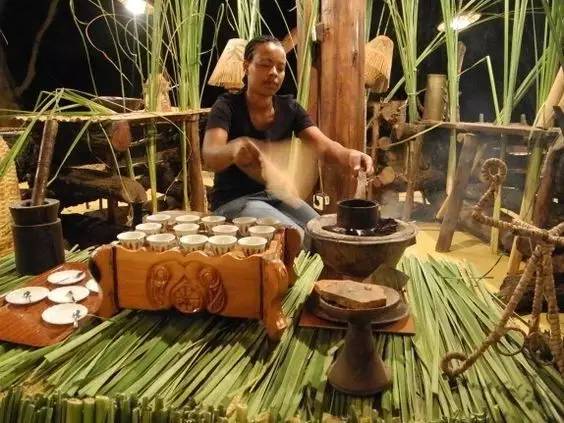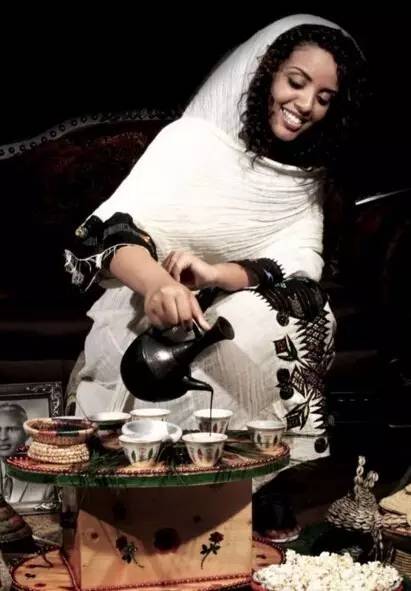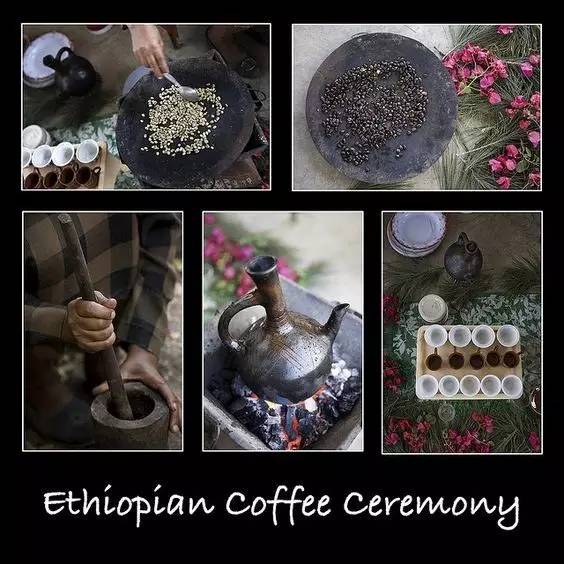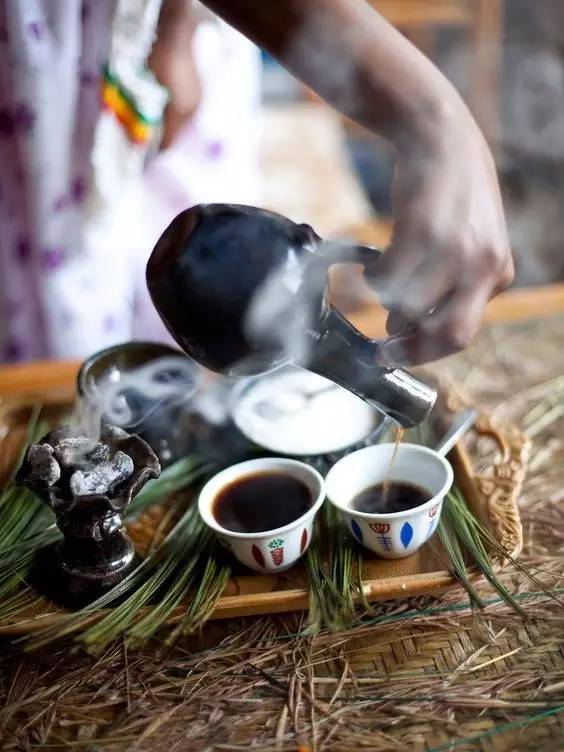Coffee ceremony and Coffee Culture in Ethiopia
All Ethiopians are proud of their coffee.
Yes, coffee is both a belief and a culture for them in Ethiopia. You can refuse to attend the wedding, but you must not refuse to attend the coffee ceremony, and being invited to the coffee ceremony is recognized and accepted by the local people.

Ethiopia is a country with changeable landforms and various nationalities, and its coffee beans grow in different regions. The only thing that can be revered by more than 80 ethnic groups is coffee. Only about 40% of Ethiopian coffee is exported, and the rest is used for various forms of rituals. For example, at weddings, people make porridge of coffee beans with coffee berries and butter and salt; coffee with honey and various herbs to ward off bad luck; and coffee leaves and coffee to entertain guests. But the most important thing is the coffee drinking ceremony.

The Buna ceremony in Ethiopia is a long process, with an average of about 1.5 hours. The ceremony, which takes place every day, aims to come to the conclusion that it may be a marriage proposal or a mediation of family conflict.

The first is roasted coffee beans. When the coffee beans are roasted, the women (often dressed up) put the coffee beans into the pot and let everyone smell the coffee beans. And then I started making coffee.

During the ceremony:
The first cup, called Abol, is the most important and the worst. If you are resolving a conflict, you must bravely drink this drink and state your point of view.
The second cup is called Tona, boiled again with water, and the taste is still strong. If the other person accepts his or her own point of view, he will drink it up. If the other party doesn't drink, there won't be a third drink.
The third cup is called Baraka, when the matter is settled and the conclusion is satisfactory, it symbolizes joy, and often the younger generation will be invited to this cup.



Original English website: http://www.saveur.com/ethiopian-coffee-ceremony-bun na-cafe
Copyright Information:
The above articles are compiled by Coffee Salon and cannot be reproduced without permission.
Photo Source: https://www.pinterest.com/
For infringement, please contact: weixin@coffeesalon.com
Important Notice :
前街咖啡 FrontStreet Coffee has moved to new addredd:
FrontStreet Coffee Address: 315,Donghua East Road,GuangZhou
Tel:020 38364473
- Prev

Introduction to the planting situation and flavor and taste characteristics of estates in Ethiopian coffee producing areas
Ethiopia is one of the major producers of Arabica coffee in Africa, producing the best Arabian coffee in the world. It is said that coffee was first discovered by shepherds in Essekafa, and the name of coffee evolved from Kafa, so Essex is still the hometown of coffee. The geographical environment of coffee production and processing is very suitable for coffee growth. Coffee is mainly cultivated.
- Next

You may not know this about Ethiopian coffee.
Ethiopia is known as the birthplace of coffee. There is such a custom in Ethiopia. No matter how poor people are, they must have a coffee pot and a charcoal stove. Why? Because the local people think that coffee is what they have to make every day, because they think chemical fertilizer is very expensive, so they never use chemical fertilizer. Then this coffee is brewed.
Related
- Detailed explanation of Jadeite planting Land in Panamanian Jadeite Manor introduction to the grading system of Jadeite competitive bidding, Red bid, Green bid and Rose Summer
- Story of Coffee planting in Brenka region of Costa Rica Stonehenge Manor anaerobic heavy honey treatment of flavor mouth
- What's on the barrel of Blue Mountain Coffee beans?
- Can American coffee also pull flowers? How to use hot American style to pull out a good-looking pattern?
- Can you make a cold extract with coffee beans? What is the right proportion for cold-extracted coffee formula?
- Indonesian PWN Gold Mandrine Coffee Origin Features Flavor How to Chong? Mandolin coffee is American.
- A brief introduction to the flavor characteristics of Brazilian yellow bourbon coffee beans
- What is the effect of different water quality on the flavor of cold-extracted coffee? What kind of water is best for brewing coffee?
- Why do you think of Rose Summer whenever you mention Panamanian coffee?
- Introduction to the characteristics of authentic blue mountain coffee bean producing areas? What is the CIB Coffee Authority in Jamaica?

